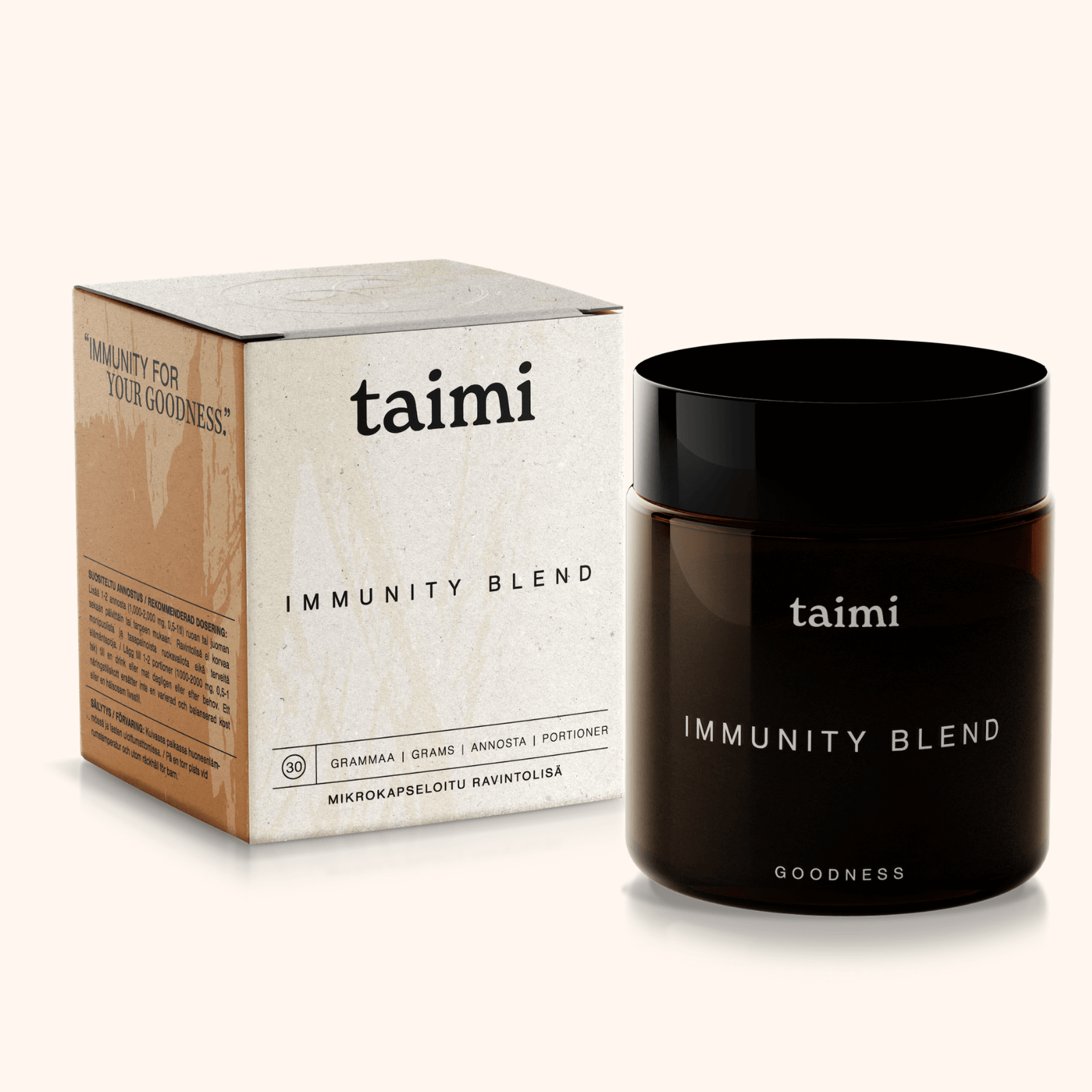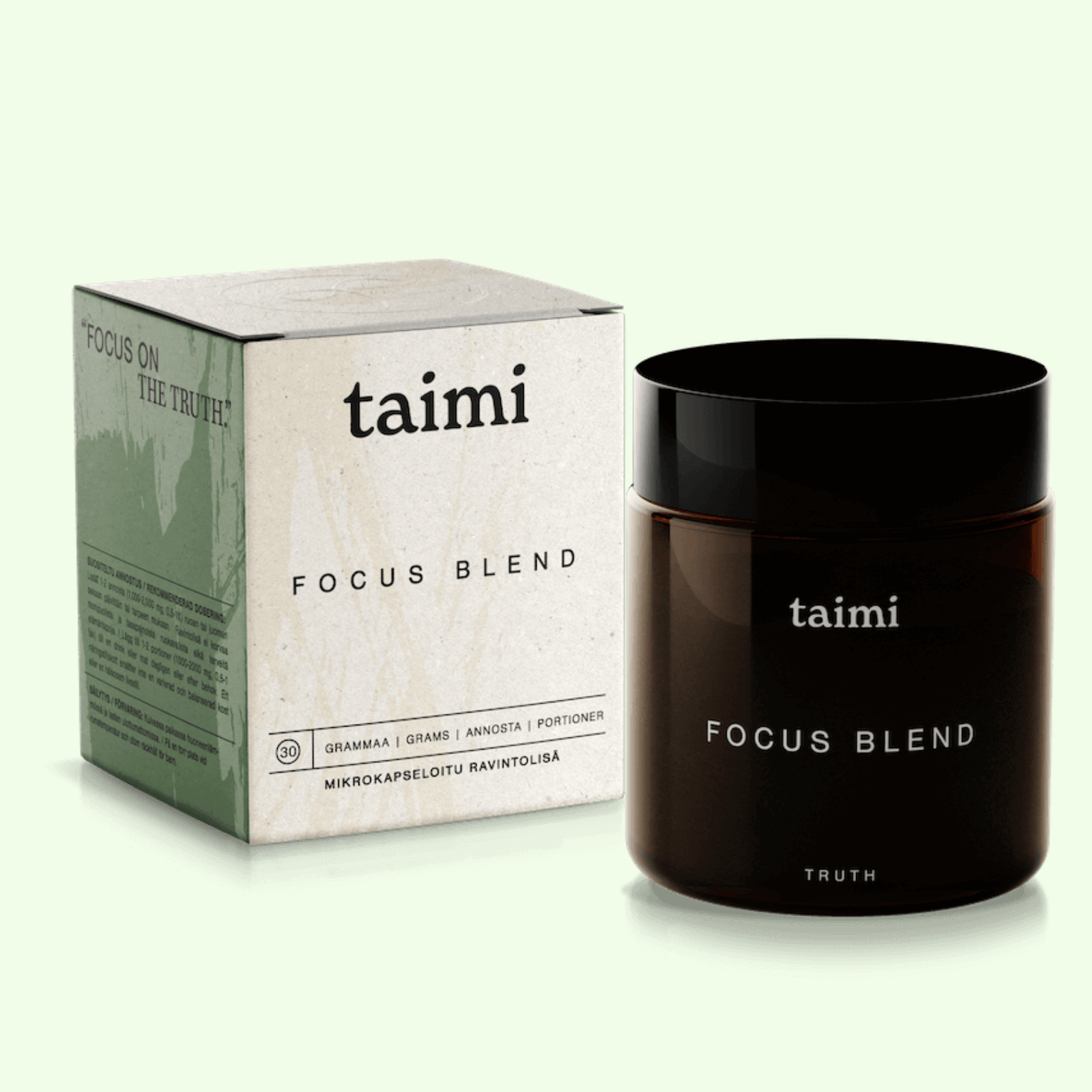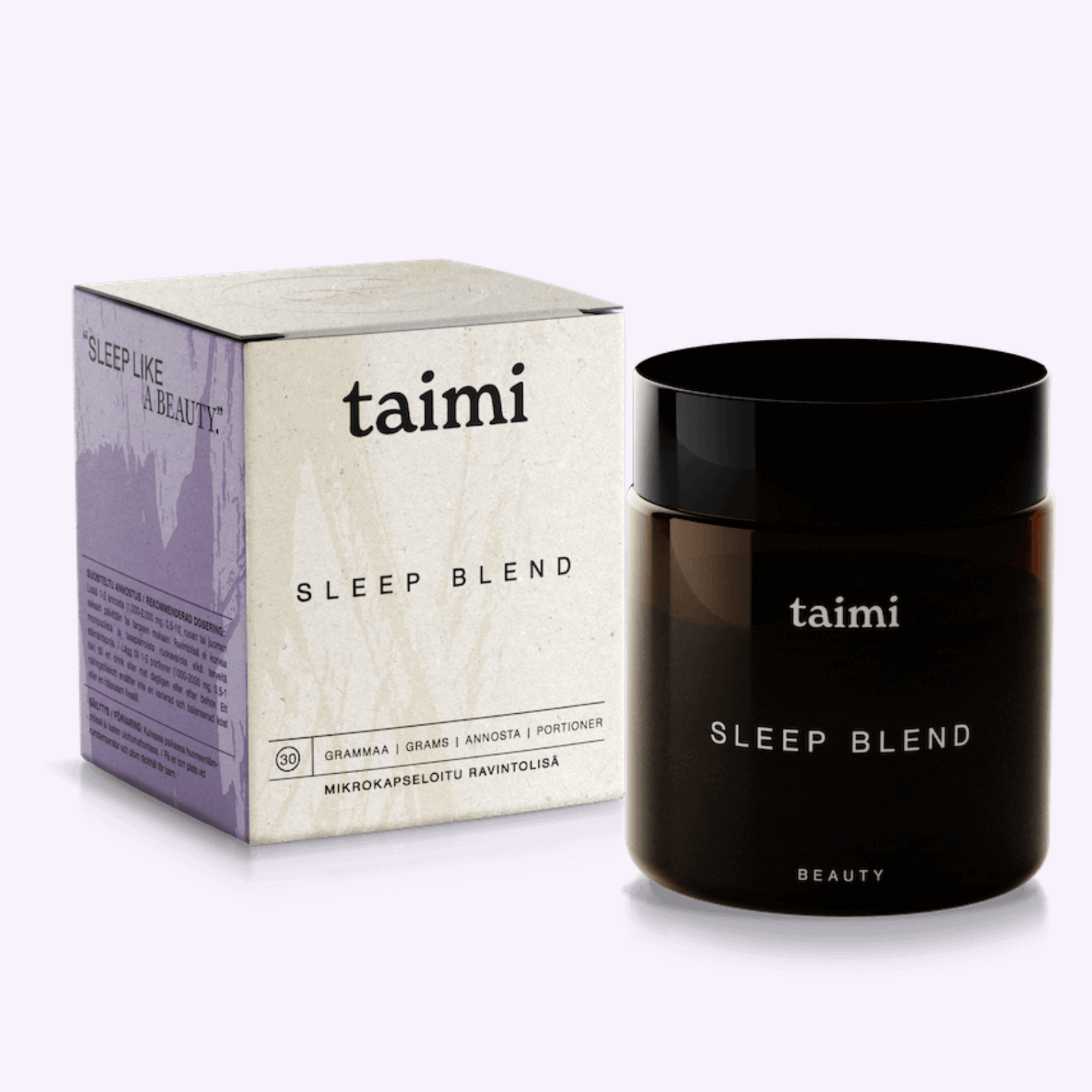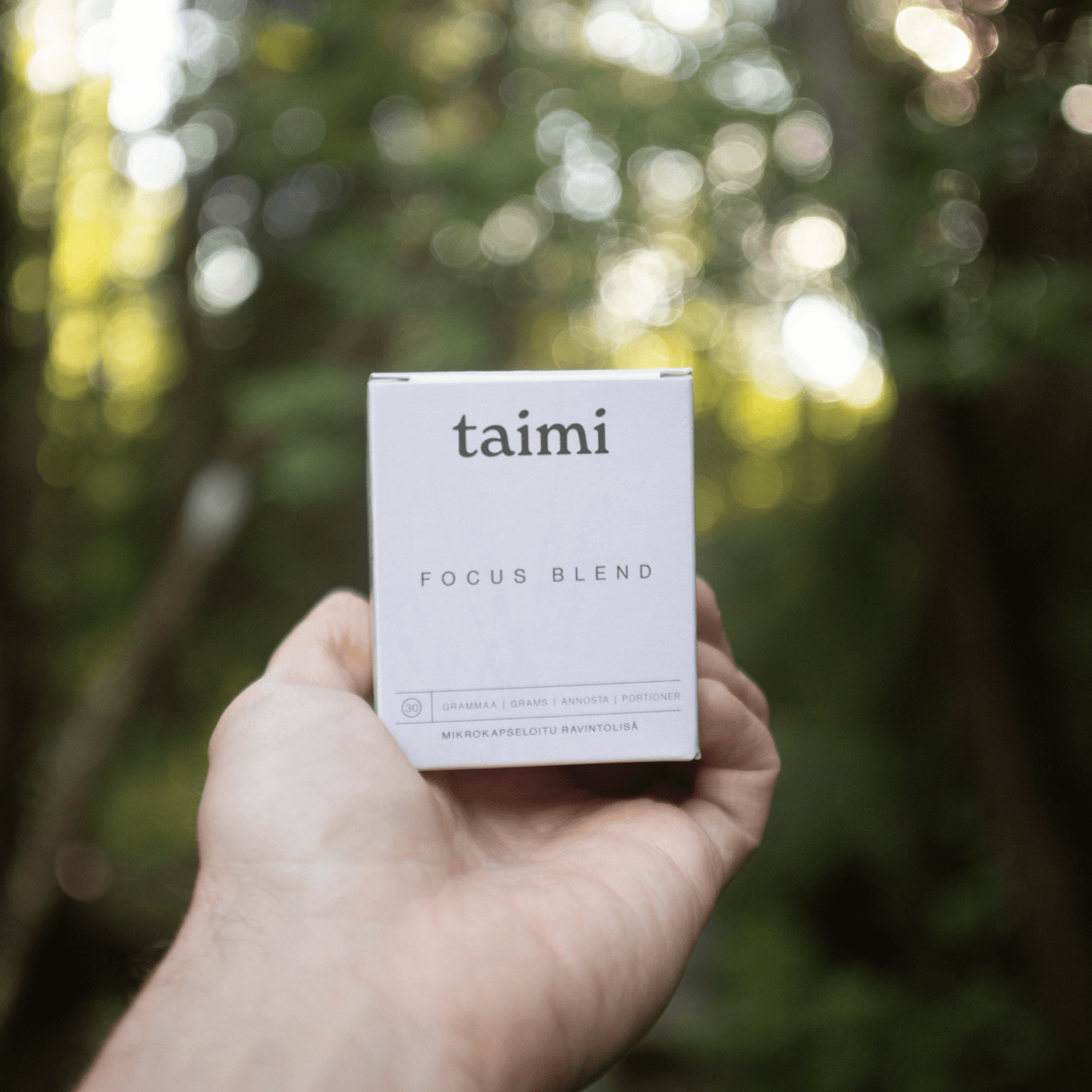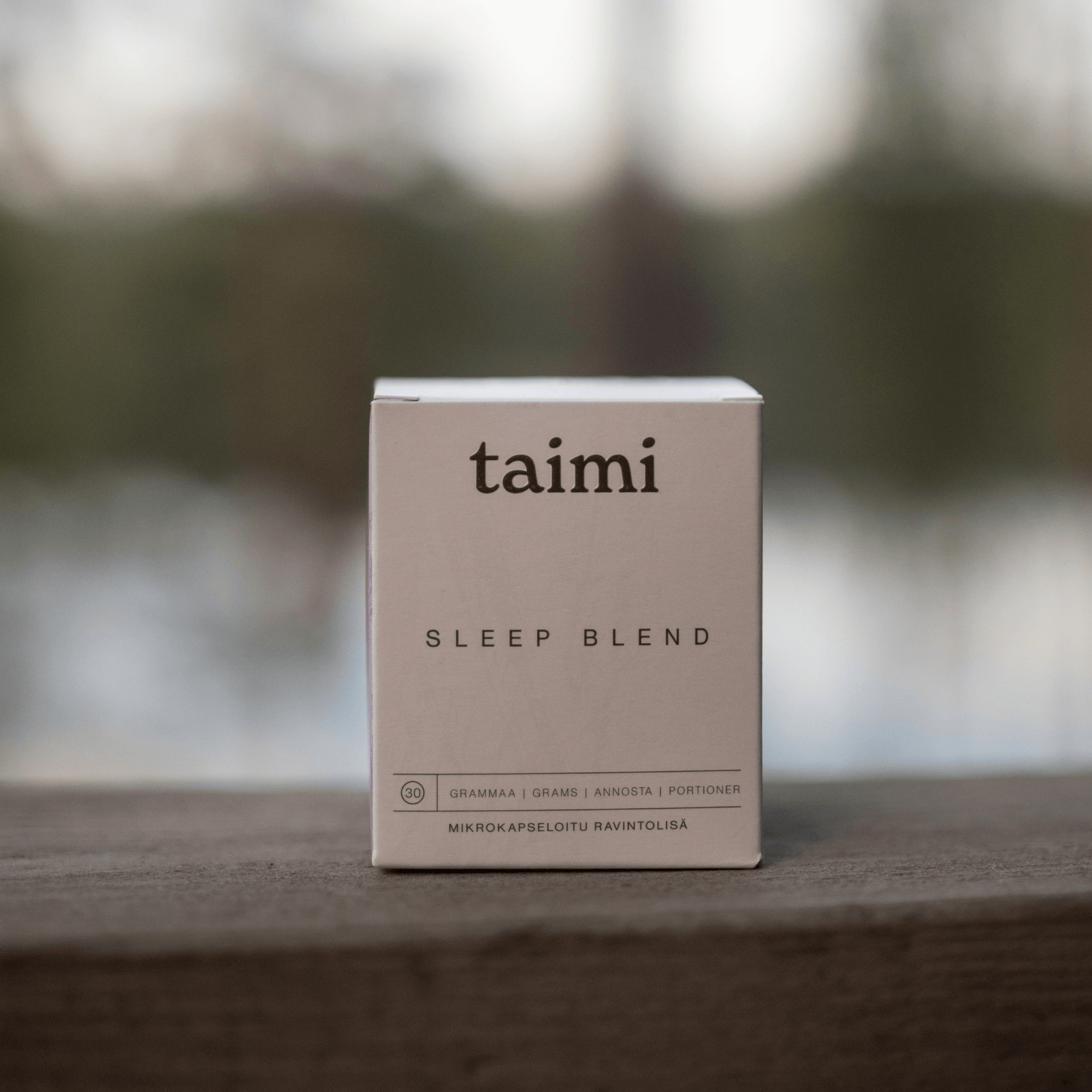Table of contents
Vitamin B5 or pantothenic acid is a water-soluble vitamin and belongs to the B vitamins. Pantothenic acid plays a central role in several functions of the body. It affects, among other things, energy metabolism, skin function, the formation of steroid hormones and helps reduce fatigue and exhaustion.
Most people get enough vitamin B5 and most adults are not at significant risk of vitamin B5 deficiency.
How does pantothenic acid affect the body? Studies have shown that vitamin B5 has, among other things, the following functions in the body:
- Converts nutrients into energy
- Regulates blood sugar levels
- Reduces bad cholesterol
- Lowers high blood pressure
- Helps prevent nerve damage
The energy produced with the help of vitamin B5 triggers neurotransmitters in the brain, which carry chemical signals throughout the body. Because of this, pantothenic acid is important in maintaining the health of the nervous system, and its deficiency is reflected in several different areas of health.
What is pantothenic acid?
Vitamin B5 or pantothenic acid is a water-soluble vitamin that is found in all living cells of the body.
Sources of vitamin B5 include both plant and animal foods, such as:
- Meats, especially offal
- Beans and legumes
- Sweet potatoes
- Certain nuts and seeds
- Milk
- Eggs
Like other B vitamins, pantothenic acid plays an important role in energy metabolism, as it acts as a coenzyme in energy-producing chemical reactions. In particular, it is involved in converting the fats, hormones and carbohydrates we get from food into usable energy for the body.
Vitamin B5 is also a key factor in the production of red blood cells and helps produce stress-related hormones in the adrenal glands.
Vitamin B5 also contributes to the maintenance of a healthy digestive tract and supports the immune system. It is good to understand that it works together with other B vitamins, helping the body use other nutrients, such as riboflavin (vitamin B2) and vitamin B6 , to support metabolism.
The benefits of vitamin B5
What does vitamin B5 affect? Increasing the adequate intake of vitamin B5 from food helps the body to defend itself against many different diseases.
Listed below are some of the key benefits and functions of this essential nutrient:
1. Protects against heart and circulatory diseases
Your body needs pantothenic acid for cholesterol synthesis. The derivative of pantothenic acid is called pantethine and it has been studied to have a positive effect on heart function, especially by maintaining normal cholesterol levels.
It appears to help protect the arteries and prevent the formation of dangerous blood clots that can potentially lead to a heart attack or stroke.
High levels of LDL cholesterol are a significant risk factor for coronary heart disease, and numerous studies have shown that vitamin B5 helps reduce blood levels of "bad" LDL cholesterol and triglycerides in people with elevated blood cholesterol levels. At the same time, it helps raise "good" HDL cholesterol.
A daily dose of 900 milligrams of vitamin B5 has been shown to lower LDL cholesterol and triglycerides, reducing the risk of cardiovascular disease . However, 900 milligrams is a significantly higher amount than the vitamin B5 intake recommendation, so such amounts should only be used under the supervision of a doctor.
A few small studies have shown that vitamin B5 helps reduce cholesterol and triglyceride levels in people with diabetes. However, further evidence is required to verify these results.

Vitamin B5 helps with energy metabolism, skin function and the formation of steroid hormones, and helps reduce fatigue and exhaustion.
2. Helps create red blood cells
Another significant benefit of vitamin B5 is its ability to help the body produce red blood cells that carry oxygen throughout our body.
Pantothenic acid has been shown to increase the amount of hemoglobin in the body. Hemoglobin is an iron-containing oxygen-carrying protein. Thus, vitamin B5 is also useful in the prevention and treatment of anemia.
3. Converts food into energy
All B vitamins help the body convert carbohydrates into glucose , which the body uses as fuel. Vitamin B5 produces an enzyme called coenzyme A (CoA), which breaks down sugars in the form of glucose into energy. The body also uses pantothenic acid for the synthesis and metabolism of fats and proteins.
B vitamins generally help our bodies use the food we eat to rebuild tissues, muscles and organs. Because it plays a key role in digestion and nutrient absorption, digestive problems can be a sign of a serious vitamin B5 deficiency.
By regularly eating foods rich in pantothenic acid, you can keep your metabolism optimal.
4. Maintains a healthy nervous system
Vitamin B5 is involved in supporting the functioning of the nervous system and in particular in the creation of an important molecule called acetylcholine . The nervous system depends on acetylcholine, which is the primary chemical for your nervous system to communicate with your organs.
Acetylcholine enables your brain and spinal cord to send nerve signals to our immune system, heart, lungs, kidneys, spleen, liver, and other organs, and is also used to send nerve signals to muscles. Without a sufficient amount of pantothenic acid, nerve damage and impaired mobility can occur.
One of the serious signs of vitamin B5 deficiency is muscle weakness and pain and, for example, burning leg syndrome, known as Grierson-Gopalan syndrome. This occurs when a person experiences painful stinging and burning and a constant feeling of weakness.
5. Improves mental performance
Vitamin B5 is also associated with improving mental function, as it can reduce many risks associated with brain function and age-related decline in memory and performance. Some studies even show that a lack of vitamin B5 in the brain can lead to neurodegeneration , dementia and Alzheimer's disease.
Getting enough vitamin B5, and B vitamins in general, can help prevent memory loss, migraines, chronic fatigue syndrome, depression, motion sickness, insomnia, and even alcohol addiction.
As mentioned above, vitamin B5 regulates neurotransmitters and is essential for the synthesis of acetyl-CoA, which helps form the myelin that protects cells. Therefore, vitamin B5 has the ability to support normal brain function, cope with stress, anxiety and depression, and promote normal mental performance.
In addition, vitamin B5 helps to reduce fatigue and exhaustion, as it balances the hormones related to the state of alertness or the feeling of fatigue and boosts the metabolism.
Doctors sometimes detect vitamin B5 deficiency in chronically stressed people. When our body is deficient in vitamin B5, we lose our ability to respond to stress and the result can be adrenal fatigue.
In this case, the symptoms can be, for example, difficulty sleeping, difficulty in moving, challenges in solving problems, mood swings, weight gain or loss, and other general stress symptoms.
6. Helps control the body's stress response
Benefits of pantothenic acid include an improved ability to deal with stress. Without hormone-regulating B vitamins, the body could not survive, because they support the overall functioning of the adrenal glands.
The use of B vitamin supplements is recommended for people who are chronically stressed or suffer from adrenal fatigue symptoms. They can help combat the effects of chronic stress and regulate appetite, energy, mood, temperature, and more.
Vitamin B5 is partly responsible for the regulation of the adrenal glands and the formation of the stress hormone cortisol. Studies have shown that pantothenic acid stimulates the ability of adrenal cells to produce cortisol and helps with normal cortisol production. We need cortisol to maintain motivation and concentration.

One of the functions of vitamin B5 is to regulate stress hormones.
7. Promotes wound healing
Vitamin B5 is important for skin condition. Research has shown that my vitamin B5 can help treat skin reactions caused by radiation therapy and speed up the healing of wounds and cuts.
It is also known to slow down premature aging such as wrinkles and dark spots on the skin. Vitamin B5 may also reduce symptoms caused by eczema, insect bites and poison ivy.
Recent studies suggest that vitamin B5 accelerates the normal healing process by controlling mechanisms that enhance cell proliferation.
The exact mechanism is still unclear, but it is significantly correlated with an increase in skin firmness, especially after surgery.
8. Relieves the symptoms of rheumatoid arthritis
According to preliminary studies, vitamin B5 may help relieve the painful symptoms of rheumatoid arthritis. One study found that people with rheumatoid arthritis have lower levels of B5 in their blood than healthy people. Low concentrations seem to be associated with severe arthritis symptoms, such as painful movement, stiffness, and inflammation.
It has been found that high doses of pantothenic acid can help control inflammation, stiffness and pain in people with rheumatoid arthritis. Taking a vitamin B supplement has been correlated with a decrease in joint pain, an increase in muscle strength, and a decrease in symptoms related to muscle or joint fatigue.
9. Supports the functioning of the immune system
Vitamin B5 helps produce antibodies that the immune system uses to defend us against external threats. Such threat factors include allergens, parasites, bacteria, viruses and toxins.
According to research, a higher intake of pantothenic acid can lead to a reduction in various harmful parasites and has been shown to inhibit the growth of dangerous bacteria. Vitamin B5 can even reduce the transmission of malaria.
It can also help manage the body's stress responses, which helps keep our immune system higher, reducing our risk of illness and exhaustion.
10. Helps acne and protects the skin
Vitamin B5 helps reduce the symptoms of premature aging, such as wrinkles, dark spots and discoloration. Studies have shown that it also plays an important role in hair pigmentation and growth. Vitamin B5 can prevent hair from losing its color during the aging process.
The effect of vitamin B5 on skin condition. According to recent studies , people who took vitamin B5 supplements had fewer acne breakouts compared to those who did not take the vitamin.
The study results show that vitamin B5 supplementation in healthy adults with acne-related facial lesions is effective, safe, and well tolerated and reduced the total number of facial lesions.
Taking a vitamin B5 supplement can help correct regional and inflammatory acne spots without causing side effects. This may be due in part to the fact that the nutrient in question affects immunity and lowers overall inflammation throughout the body.

Vitamin B5 supports brain function and helps concentration.
Best sources of vitamin B5
In Finland , the safe and sufficient intake recommendation for vitamin B5 is 4 to 7 milligrams per day for adults and 2 to 5 milligrams per day for children.
What are the best sources of vitamin B5? In Finland, Finelli or THL do not measure pantothenic acid levels in food, i.e. exact amounts are not available. However, 15 foods generally considered to be good sources of vitamin B5 are listed below:
- Chicken liver
- Beef liver
- Pig's liver
- Kidneys
- Beef heart
- Sunflower seeds
- Avocado
- Portobello mushroom
- Sweet potato
- Salmon
- Green lenses
- Red lenses
- Sun-dried tomato
- An egg
- Cauliflower
Vitamin B5: supplements and dosage
In most cases, it is not necessary to add pantothenic acid if you get enough of it from the diet. Some people may benefit from a vitamin B5 supplement and supplements are available that contain either pantothenic acid alone or vitamin B5 along with other B vitamins.
You'll find that most multivitamins provide enough of all the B vitamins you need. The amount of pantothenic acid in food supplements typically varies from about 10 mg to very large doses of about 1,000 mg. However, it is recommended to consult a doctor before taking such large amounts.
Taimi Focus Blend contains 24.9 mg of vitamin B5 per serving. The product also contains all the necessary B vitamins;
- Vitamin B1 (thiamine )
- Vitamin B2 (riboflavin)
- vitamin B3 (niacin)
- Vitamin B5 (pantothenic acid)
- Vitamin B6 (pyridoxine)
- Vitamin B9 (folate)
- Vitamin B12 (cobalamin)
>> Check out Focus Blend here <<
Vitamin B5 deficiency and symptoms
Since vitamin B5 is found in many foods, its deficiency is very rare in Finland. However, the deficiency can occur together with deficiencies of other B vitamins.
Symptoms of vitamin B5 deficiency can include, for example, the following:
- fatigue
- depression
- irritability
- insomnia
- stomach pains
- vomiting
- burning feet
- upper respiratory tract infections
- muscle cramps
People with a higher risk of developing a deficiency include:
- alcoholics
- women using oral contraceptive pills
- persons with severe malnutrition
- people whose absorption of vitamins and minerals is impaired due to certain medications or intestinal diseases.
Risks and side effects
What are the side effects of pantothenic acid? Although the use of vitamin B5 is generally very safe when properly dosed, higher doses can cause side effects such as diarrhea or increase the risk of bleeding.
If you are pregnant or breastfeeding, do not exceed the recommended amount of 5-7 milligrams per day, as it may not be safe.
Also, do not use dexpanthenol, a pantothenic acid derivative used for hemophilia and gastrointestinal obstruction. This medication may increase the time it takes for the bleeding to stop.
Some studies also show that pantothenic acid can increase the effects of a class of drugs called cholinesterase inhibitors used to treat Alzheimer's disease. Because taking these medications and pantothenic acid together can cause serious side effects, make sure you use the two together only under a doctor's supervision.
Some sources also indicate that vitamin B5 may interfere with the absorption and effectiveness of the antibiotic tetracycline. You should use B vitamins at a different time than tetracycline.
Summary
- Vitamin B5, i.e. pantothenic acid, is a water-soluble nutrient that is found in all living cells of the body and in plant and animal-derived foods.
- Good sources of vitamin B5 are meat and especially offal, beans and legumes, certain nuts and seeds, sweet potatoes, milk and eggs.
- In Finland, the nutritional reference value for vitamin B5 is 2-4 milligrams per day for children and 5-7 milligrams per day for adults.
- Vitamin B5 is needed to convert food into energy, to support the function of nerves and metabolism, as well as to prevent cardiovascular diseases and maintain brain health.
- Maintaining adequate levels of vitamin B5 in the diet can help protect against conditions such as high cholesterol, anemia, side effects of stress, cognitive problems, and slow-healing wounds.

